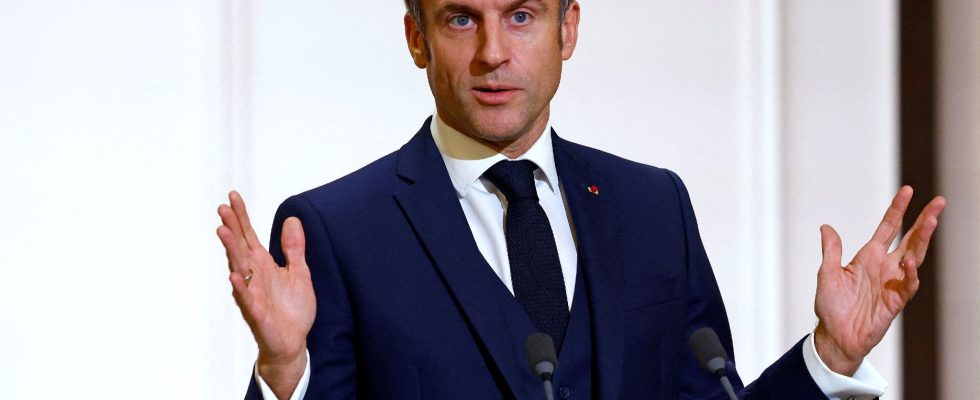Among our German neighbors, the term “Krankreich” (sick France) is now an anachronism. In September, the famous German magazine Der Spiegel complimented French economic policy, pointing out the reversal of dynamics between Germany and France. Near The Expressjournalist Michael Sauga, from Spiegeleven urged us to “look [r] data, Macron did the right thing for the French economy”. On November 21 (after having, in July 2023, also praised the “hidden successes of France”) the no less prestigious The Economist offered to explain “why German bosses “praise” France“. “German bosses, frustrated by the dysfunctional three-party coalition in power, look admiringly at the French government, which prioritizes business, courts leaders and offensively promotes France as a place of investment and innovation “, describes the newspaper.
The reasons for this enthusiasm are not only due to the dysfunctions that our neighbors face. Certainly, the German economy is weighed down by a sharp fall in domestic consumption, while its industry suffers from excessively high energy prices and less dynamic exports to China and the United States – where France, less dependent on Russian gas and Chinese exports, is doing better.
If German bosses are eyeing France, it is above all because they consider that “the French have transformed their way of dealing with investors and entrepreneurs, underlines The Economist. Often criticized for its dirigisme, the country seems to have found a way to use its centralized institutional structures not to control things but to support private sector businesses, attract investors and nurture entrepreneurs.
It is difficult to contradict the magazine on this last point, while Emmanuel Macron is multiplying events around the economy this week, particularly concerning exports and investment, with the underlying ambition of recalling his unwavering support for businesses. . How can we miss, also, the “Choose France” operation – a major annual rally set up by the same Emmanuel Macron, the aim of which is to underline the importance of international investments and innovation in France. The sixth edition took place this summer at the Palace of Versailles. “As the boss of a medium-sized Mittelstand company (in Germany, the Mittelstand refers to a vast network of small and medium-sized businesses, often presented as the strength of the country’s economy: Editor’s note), Ms. Giesen [la directrice générale de Pfeiffer Vacuum, un fabricant allemand de pompes à vide] was delighted to be seated next to Elon Musk, the boss of Tesla, and Lakshmi Mittal, a steel magnate,” reports The Economist.
“These people know what businesses need”
The results are there: in 2022, for the fourth consecutive year, France attracted more foreign direct investment projects (1,250) than any other EU country, according to the consulting firm EY. More, therefore, than the United Kingdom (less than 1000) and Germany (just over 750). On another level, after the United Kingdom left the EU, Ile-de-France also attracted more than 7,000 bankers, analysts and other financial services employees.
The other profitable bet, read The Economist, these are the president’s nods to the business world and his tendency to place people from it in government. If, in France, this tendency is regularly the subject of criticism, the assessment made of it is different in Germany, where almost no member of parliament or senior civil servant comes from the business world. “These people know what businesses need,” comments The Economistand the investment they help attract can be politically useful as new factories hire staff from France’s “rust belt” and other regions that tend to vote for the extremes.
“More generally,” the newspaper underlines, “France is discreetly reinventing the nature of dirigiste industrial planning.” Translation: the Pompidolian tradition, which wanted the State to command and the civil servants to do, is over, even if the government remains the conductor – as evidenced by the implementation of the “France 2030″ plan, which aims to invest 54 billion euros in future and green technologies”. To illustrate its observation, the newspaper takes as an example Verkor, the start-up which is currently building a battery factory worth 2 billion euros in Dunkirk, then that France aims to make Hauts-de-France a “Silicon Valley” for batteries.
Overall, in this new dirigisme which is no longer one, the State no longer seeks to act in place of private investors and entrepreneurs but to help them to act. This ambition has everything to seduce German bosses. And The Economist to quote Sven Janssen, German venture capitalist: “France is now better than Germany at supporting the market economy through public policies.” The kind of compliment that makes you want to read the foreign press more often.
.
